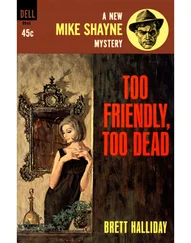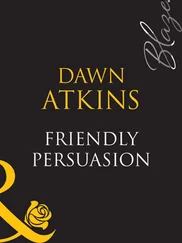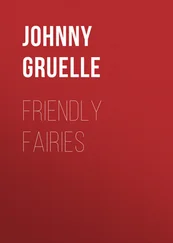"In the end, I didn't study."
"So how do you make a living?"
"This and that."
"In any case I think I remember your face from somewhere."
"Maybe you saw his mug on television," Moran says.
"On television?"
"Because just as you see him here, adjutant of reservists, distinguished major, bursting with patriotic values, on television he's on a satirical show rattling off bad jokes, and lucky for him there's a laugh track so he won't fall flat."
The officer-comedian punches Moran in the ribs with an affectionate fist.
"So what do you say, Hezi," — Ya'ari turns to the adjutant, man to man—"I came to bring the detainee warm clothes, but better still why don't I free you of him? So he can do something useful for the world instead of wasting away here."
But the officer-comedian puts on a grave face and answers firmly: It is all right to give the clothes to Moran, but it is not all right to give Moran to his father. He is sentenced till the end of his unit's reserve duty, and will be released when the others are. And as for usefulness to the world, his cell phone has been confiscated, but he is allowed one call a day to his wife, and if she's not home or her cell is turned off, that's not the army's problem. And anyway, how did you get permission to enter the camp?
"I told the recruits at the gate that I am a bereaved uncle."
"Bereaved uncle?" the adjutant says, marveling. "What on earth is a bereaved uncle?"
Moran, surprised by his father's words, reminds his friend about his cousin who was killed seven years before.
"By friendly fire," Ya'ari quietly adds.
16.
THE TRAIN ACCELERATES, the cars emit a metallic rumble, and the three straw baskets, left in the corridor, embark on little independent journeys and need to be reined in. Sijjin Kuang rises from her seat, pulls them into the compartment, ties them together, and shoves them against the door, blocking the entry of any curious passengers strolling through the train. Then she takes a newspaper from one of the bags of food she bought at the station, gets down on her knees, and spreads the paper on the floor. Then she lays out the feast: brown eggs, smoked sardines, fried calamari, a wedge of hard white cheese veined with red, a few greenish bananas, moist dates, and a hairy coconut. With her long delicate fingers she takes a large smoked sardine and begins to gnaw at its flattened head.
Daniela watches with admiration as the tall and graceful Sudanese flexibly folds her legs to allow room for others on the floor of the compartment, and after hesitating a moment she gathers up the hem of her skirt and also assumes a kneeling position. Avoiding the smoked fish and seafood, she cuts herself a slice of the cheese with the blade of a penknife that Sijjin Kuang opens and offers her. Yirmiyahu, without leaving his seat, fashions himself a cone out of newspaper and fills it with sardines and squid, and tears off a generous piece of pita bread. They lunch together in silence, as at a mourners' meal, but with a warm sense of conviviality in this compartment set apart by its wall of big baskets, which glow golden in the afternoon light.
Sijjin Kuang does not eat sweets and is content to offset her salty, spicy lunch with some coconut. Yirmiyahu happily tops off his meal with the Indian toffee procured by his sister-in-law, then tilts his head back next to the window and closes his eyes. Daniela finds that the candies she bought are too sweet and have an unfamiliar aftertaste, and makes do instead with a few dates. Since long silences are generally difficult for her, she tries to draw out Sijjin Kuang on the subject of rituals of fire and winds and trees and animals, and from the pagan's short answers gathers that among idolaters as well as monotheists, materiality carries less weight than metaphors and symbols. Indeed the Sudanese woman thought that when Yirmiyahu threw the candles in the fire, he was performing a religious rite.
There's no telling whether he is asleep or listening to their conversation with his eyes closed. Daniela helps the nurse gather up the food-stained newspapers, and when Sijjin Kuang slips out of the compartment, stepping over the baskets, to dispose of the bags of trash, Daniela resumes her seat by the window, opposite her brother-in-law. Yirmiyahu opens his eyes and smiles. Well, this is surely not how you imagined the visit, being hurried from place to place. But it's not so bad — in the remaining days you'll have a chance to rest.
"It's absolutely fine, this traveling. Resting I can do at home."
He nods.
"All in all, it's good that Amotz didn't come with you. He always wants to accomplish something clear and practical, and a trip like today's, back and forth just to see a window and a bed, would have driven him crazy."
His mildly critical tone makes her uneasy. The train suddenly speeds up and blows its whistle repeatedly. Yirmiyahu sticks his head out the window to see what the noise is about. They are riding through a sea of short yellow grass. Had her sister really told him about more successful suitors in her youth, or was that his own idea? When she was in high school, Yirmi and Shuli were already married and living in Jerusalem, only on Saturdays would they visit Tel Aviv. And who talked then about "more successful" anyway? Certainly not her parents. They never characterized her friends that way, but would only express an opinion about who seemed nice, and who less so. From the first, they found Amotz likeable and, most important, trustworthy.
Suddenly she has the desire to confront her brother-in-law and defend her husband. "It's strange," she turns to him with a serious look when the train's whistle blasts die down. "Strange that you mention boyfriends from more than forty years ago, as if you had actually known them."
"That's true, I didn't know a single one of them, but sometimes, years later, Shuli would recognize someone's name in the newspaper, someone who went far."
"Far where?"
"Do I know?" he says, uncomfortably. "For example, that guy who ended up becoming the attorney general."
"Why do you think I should have married the attorney general? I was never involved in any crime."
He laughs. "How about medical problems?"
"What's the connection?"
"I'm thinking about that chubby professor we ran into at a concert in Jerusalem a few years back, the famous heart surgeon, who was so excited to see you… no regrets?"
"About what?"
"Don't get upset, I'm just making conversation. That you didn't pick him over Amotz?"
"He was a rather limited and boring man. Anyway, you're funny — what do you know about him?"
He places his hand on her shoulder. "Little Sister, don't mind my jabbering away here, at the end of the world, the end of life, about suitors you had forty years ago. I'm just curious. I would also ask Shuli sometimes, what is it about your sister that attracts the boys? I mean, you were never especially beautiful."
"Certainly not. There were always prettier girls around."
"But the men were drawn to you anyway, like bears to honey. Especially the intellectuals."
"You're exaggerating…"
"And in the end, out of all of them, you picked a technician…"
"He's not just a technician."
"And you picked him out so early, you were maybe twenty."
"What's this about?" she says indignantly. "What do you have against Amotz?"
"Who said I had anything against him? Why are you putting words in my mouth? When all those many years we've been not just brothers-in-law but also friends."
"So why does he suddenly make you uncomfortable?"
"Who said uncomfortable? What's the matter? Why can't we just chat about your youth? It's so rare that we're alone together, without Shuli or Amotz. So tell me why you picked him over everyone else?"
Читать дальше












